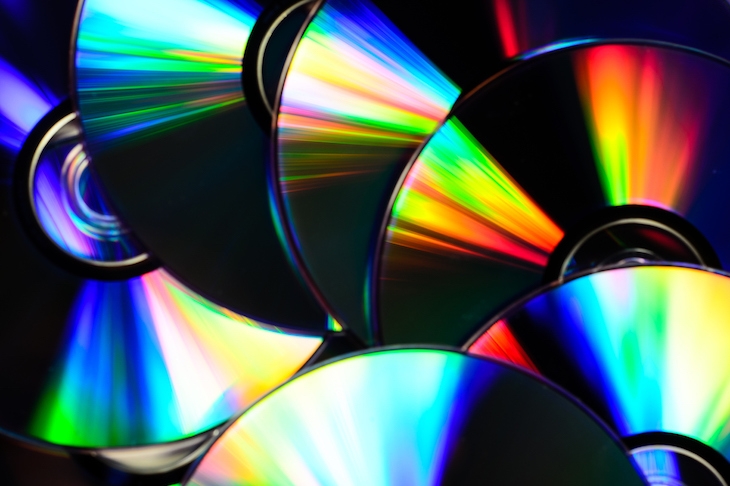According to the accountants’ ledgers, DVDs are dying. Sales of those shiny discs, along with their shinier sibling the Blu-ray, amounted to £894 million last year, which is almost a fifth lower than in 2015 and less than half of what was achieved a decade ago. And last week we finally said goodbye to the postal DVD service Lovefilm, too. The explanation for this decline is the explanation for many modern declines: digital is taking over. Nowadays, downloads and streaming services make more money than the old physical formats.
But accountants don’t know everything. From a different perspective, through the bloodshot eyes of a cinephile, DVDs are thriving — and they’re doing better in Britain than in most other countries. This success is measured in quality rather than quantity. A smallish band of homegrown distributors is working to make more films available in ever more wondrous editions. Labels such as Eureka’s Masters of Cinema, Arrow Video and Second Run are now familiar to movie fans all over the world.
Strangely, the decline of physical media is helping to sustain these distributors. There was a time — sometimes referred to as ‘the Golden Age of DVD’ by weirdos like me, who have collected thousands of discs — when the big studios brought their archives to home-video wholesale. Universal Pictures released dozens of old science-fiction movies, right down to Monsters on the Campus (1958) and The Leech Woman (1960). Warner Bros. printed box set after box set of films noirs. Fox went all out on Charlie Chan. But then the economics changed. The studios are now concentrating on digital, and leaving their archives to the specialist DVD publishers.
A case in point is Arrow Video’s forthcoming edition of The Thing (1982). Several years ago, Universal wouldn’t have dared to loosen its grip on one of John Carpenter’s most popular films. Now it is allowing a boutique British label to release a new restoration on Blu-ray, and collectors are shivering with anticipation. Arrow is known for the care that it puts into its releases. Its edition of The Thing is overflowing with behind-the-scenes material and has sublimely illustrated packaging. There’s a sense of luxury about it, as though the Golden Age has become the Platinum Age.
This transmutation isn’t solely a result of smaller distributors delving into studio catalogues. It’s also because, 20 years after the birth of DVD, more and more rarities are coming to the format, making them rarities no longer.
Last year, for instance, the British Film Institute finally untangled the rights issues that had kept Abel Gance’s Napoléon (1927) shut up in film canisters for decades and only let out for special occasions. Its home-video release, last November, was a triumph for many reasons — but especially for its accessibility.
An even more totemic example is German Concentration Camps Factual Survey, which was also published by the BFI in April. This documentary is composed of footage shot by Allied cameramen — of the survivors, of the perpetrators, of the corpses — as the Nazi concentration camps were liberated in 1945. It was intended to be shown to German audiences at the time, but that idea was abandoned and the film was left unfinished and largely unseen. Yet now, after years of reconstruction work by the Imperial War Museum, we can watch it in our own homes.
Digital streaming and downloads could be just as democratic as DVD — maybe more so. But they’re not there yet. iTunes isn’t the sort of place to find Napoléon or German Concentration Camps Factual Survey. The more specialist outlets, such as MUBI, have relatively limited libraries. Few offer the wealth of supplementary material — from making-of documentaries to director commentaries to booklets — that discs do.
This will surely change. The accountants will make sure that digital delivers and, when they do, it will be a moment of joy for cinephiles, but also of sadness. Some boutique labels will find that their small niche within the entertainment industry has become too small to support them. Some major films — perhaps including Erich von Stroheim’s Greed (1924) — will never get the DVD releases they deserve.
For now, however, this old format keeps on keeping on. The most legendary label of all, the Criterion Collection, has recently expanded into Britain from its home in New York. Others, such as Powerhouse Film’s Indicator series, are starting up for themselves. More items keep on being added to the list of amazing forthcoming releases: new restorations of Buster Keaton movies, a Sacha Guitry collection, The Colour of Pomegranates (1968) in high definition. If only all deaths were so full of life.






Comments